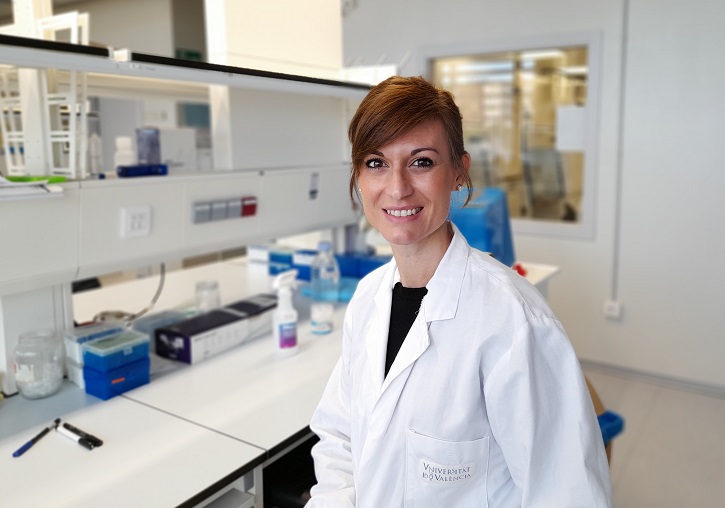Users
Social media
- More details here...
- Address
Parc Científic de la Universitat de València C/
Catedrático Agustín Escardino, 9
46980 Paterna (Valencia) Spain - Email:
iu.i2sysbio@uv.es - Phone:
(+34) 963544810
- Address
Links
Two projects from the University and the CSIC investigate wastewater as routes of transmission of the COVID-19 virus

Investigation
Two projects from the University and the CSIC investigate wastewater as routes of transmission of the COVID-19 virus

The Institute of Integrative Systems Biology (I2SysBio), a joint center of the University of Valencia and the CSIC, is developing two projects led by biologist Pilar Domingo-Calap to analyze the presence of SARS-CoV-2 in environments such as wastewater and its possible transmission through this medium. These environmental virology searches may provide a virus surveillance tool and, therefore, better management of the pandemic.
Although SARS-CoV-2 and other coronaviruses are mainly transmitted directly between individuals, the permanence of the virus in the environment has the power to cause new outbreaks that can harm the effectiveness of the efforts and measures applied. This is why the I2SysBio Environmental and Biomedical Virology group is carrying out two investigations to better understand this type of virus expansion.
The first of these projects is Environmental COVID, funded by the Carlos III Health Institute, and which aims to determine the presence of the virus in environmental samples and its potential indirect transmission. Previous studies have shown that similar viruses have been detected in wastewater and that viral particles from these could remain infective long enough to constitute a risk. Researcher Pilar Domingo also highlights the function of epidemiological surveillance and control that wastewater analysis allows.
"Thanks to Environmental COVID, we have been carrying out epidemiological surveillance of SARS-CoV-2 in wastewater in Valencia since the beginning of the pandemic. This methodology allows us to know quickly, simply and economically what is happening in the population, since wastewater contains viruses from both COVID-19 patients, as well as pre-symptomatic and asymptomatic individuals," she declared. Domingo-Calap.
The data collected shows a correlation with the prevalence of the virus in the population, so it can be used to monitor the behavior of the virus and detect possible outbreaks. Furthermore, the sequencing of this data, explains the researcher, "will allow us to know the variants that have circulated in Valencia since the beginning of the pandemic."
The group also leads FecOrSARS, a project that aims to determine the possible route of fecal transmission and whether this can occur through wastewater. Having information about all possible transmission routes is important, explains Pilar Domingo-Calap, to influence decision-making and measures to be applied.
This research may be of special interest in underdeveloped areas, without adequate sanitation and sewage conditions that could mean a transmission route, but requires a detailed study to validate these infection routes. "Although SARS-CoV-2 is mainly a respiratory virus, it has been seen to also replicate in the intestinal mucosa. The presence of infectious particles will be studied in 100 patients by taking longitudinal stool samples, which will allow us to determine whether the fecal-oral route is a determining factor in the transmission of the coronavirus."
Links to project pages:
FecOrSARS: https://links.uv.es/BTltu8X
EnviromentalCOVID: https://links.uv.es/ijk5Gy6


